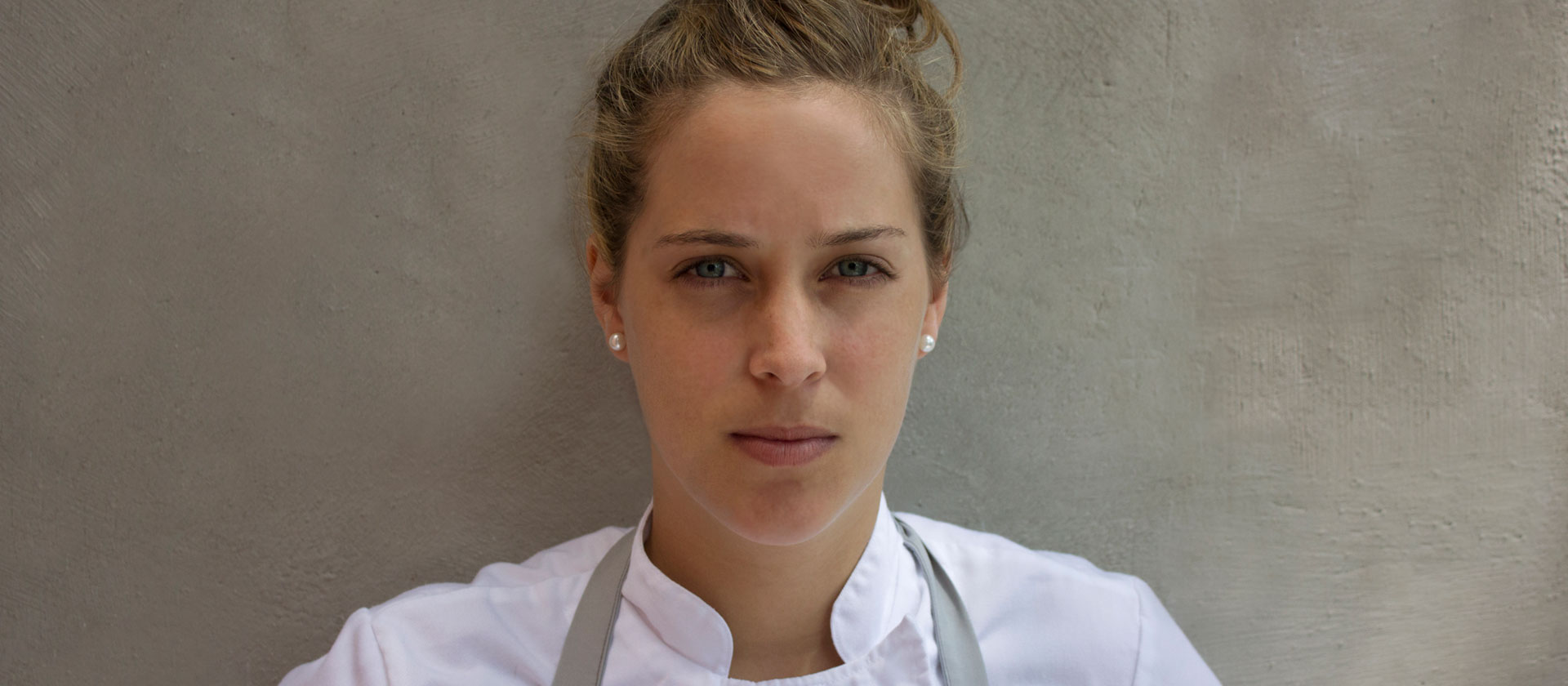
Le Cordon Bleu Summer Festival 2025
Tickets are now on sale for Le Cordon Bleu Summer Festival 2025. This year’s Festival will include interactive practical workshops and tastings with Le Cordon ...

Pía graduated from Le Cordon Bleu Peru in 2006 with a Diplôme de Cuisine. Three years later she began working at Central Restaurante, the Lima-based restaurant owned by fellow Le Cordon Bleu graduate and now husband Virgilio Martínez. Within five years, Pía had worked her way to the role of head chef and in 2014 Central was named the Best Restaurant in Latin America by the World's 50 Best Restaurants.
In 2018, Pía took the spotlight with the opening of her own restaurant, Kjolle, also in Lima and has acheived international recognition being named as the World's Best Female Chef in 2021.
What does it mean to you to be chosen as The World’s Best Female Chef?
"It is a moment to celebrate! Of course, I feel the personal satisfaction of receiving an important recognition, but beyond that, being relevant to the point that it is noticeable and tangible. It is also a recognition for Peru and how much its gastronomy has to offer."
How would you define the journey towards getting the title?
"A path of hard work, of being conscientious and consistent. It is about professionalism all the way, in everything that is done, always."
How do you think this achievement will impact the gastronomy sector in Peru?
"Any recognition of Peruvian people, places and culture, whether regional or worldwide, is to be celebrated because it indicates that we are being watched becoming better known for our potential and leadership."
What influence are haute cuisine concepts having on changing habits in day-to-day food consumption?
"Gastronomy can have a positive impact on changing habits, but the discussion it is not limited to day-to-day food consumption. There are many other factors to consider with food, health, well-being, sustainability, fair trade. The kitchen can be visible to support a healthier practice, for instance, in the choice of products from the sea or seasonal fruits. It is an individual’s task to make better decisions. Hence education is very important, and that topic has many more considerations."
Peru is a unique territory in terms of biodiversity, what does it take to make the most of it?
"I would say that knowing how to take advantage of it while respecting our environment is the most important. Understanding the implications and the complexity of our culture and different natures is underlined. Peru is a very rich and diverse country and taking advantage of resources requires taking into account ecological, biological, geographical and social factors, so as professionals we try to convene more fields of study to have a more holistic vision of things to know before extracting, harvesting and collecting."
What are the main aspects to improve in Peruvian gastronomy to make it more sustainable?
"It will depend; if you talk about sustainability in economic terms you must see how companies work and what the objectives are. Objectives will be different from the one who has a wheelbarrow on the street or at a market, to a neighborhood restaurant or one of haute cuisine. In Peru, you’ll often come across the aforementioned wheelbarrow selling food, fruits and fresh pressed juices among other things. Somewhat like a foodtruck predecesor. They will have different stories and foundations in terms of supplies and the most sustainable action would be based on this knowledge. The more we understand about different worlds whether marine, Amazonian, countryside, Andes, valleys, lakes, etc. and different cultures, the better decisions we will be able to make."
How can chefs bring agrobiodiversity inputs closer to household consumption?
"They can make it more visible in their practice, showcasing the importance of seasonality, what is best to consume at a given time and place, what does not unbalance an ecosystem and how to use ingredients properly and what is not valued because it is not known."
How do you work closely with producers by shortening value chains?
"By working directly with them. The most important value is knowing how to listen to them as well. Local knowledge, empirical knowledge has the same value as that of a scientist or linguist. The cost of dedicating time for this and sustaining a relationship based on trust is high, but it is worth it in the medium and long term."
In this new normal, what is the next step for chefs and cooks?
"It is up to us to know what place we want to occupy, what our vision is and to commit to those decisions, being a chef today allows you a very wide spectrum of options and professions. It is important to be professional and integrated. What you choose to do, you should do in the best possible way and add to the economy of a country and help build it, being part of a movement that pushes forward the ecological, the sustainable, the fair, remaining creative and reactive. If we have learned anything, it is that staying in the same place of comfort is not an option. We always have to change paths to move forward."
How did you discover your passion for gastronomy?
"I always knew I wanted to be a chef since I was a child, I didn't look at other options and I decided to do it."
How did the culinary techniques learned at Le Cordon Bleu help your professional career?
"It is very important to have a solid technical base to access professional kitchens and it plays a good role."
What is the advice you would give to recent Le Cordon Bleu graduates?
"That they decide conscientiously what they want to be and do, these are fundamental questions in this profession, as in any other. There are many possibilities to do many things and committing fully will make it light work; it will always be the activity you enjoy and want more."
Do you consider that Le Cordon Bleu helped you on your way to international recognition?
"I look back and feel that all my decisions have led to this path and I feel very satisfied and content."
Find out more about the Diplôme de Cuisine our other professional cookery courses to see how you can follow in Chef Pía's footsteps.
Copyright © 2025 Le Cordon Bleu International B.V. All Rights Reserved.